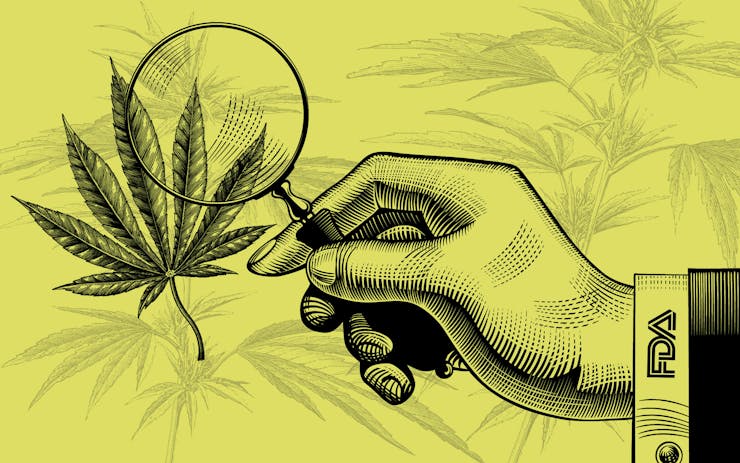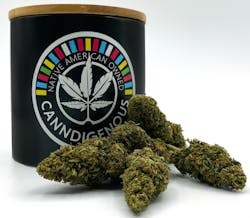After ten hours of testimony about cannabidiol (CBD) from more than 100 stakeholders, two things are clear: The American public has a high desire for CBD products, and too many CBD manufacturers are delivering shoddy goods.
On Friday, FDA Acting Commissioner Ned Sharpless kicked off the agency’s historic first-ever public hearing on CBD by noting that “we’ve seen an explosion of interest in products including CBD, [but] there is much we don’t know.”
There’s plenty we do know, however, and many of those facts were aired at the hearing, which Leafly’s editors Bruce Barcott, David Downs, and Ben Adlin covered live as it happened.
At the end of the day, here are our consensus takeaways.
1. There’s too much junk in the CBD market.
One of the most constant themes in today’s hearing: The current CBD market is flooded with sketchy players selling junk products. A number of stakeholders offered lab data showing that bottles of “300 mg CBD oil” actually contained 22 mg., or no CBD at all.
These are the Wild West days of CBD sales, and a number of companies are taking advantage of the absence of regulations by pumping crap into the market. They can manufacture at a deep discount and offer cheaper products than genuine high-quality CBD makers, who must invest in top-shelf extraction labs and establish good manufacturing practices.
Count on this: A reckoning is coming for these bad actors. FDA regulation of CBD is almost certain to contain quality assurance requirements. The question is: Can the good actors stay in business long enough to be saved by that shakeout?
2. Consumers have no way of knowing what’s legitimate.
Even those of us who write about this industry daily know only a handful of brands that we personally trust. We, like other consumers, have no way of knowing which brands are legitimate and which are peddling snake oil. Or olive oil. Or dextromethorphan.
One of the most constructive comments came from a stakeholder who cautioned the FDA to regulate, but not too tightly. Allow brands to create brands, which means they can advertise and establish markers of trust. That’s the whole point of brands.
3. Many people still have no clue what CBD is.
Time and again, stakeholders rose to claim their two minutes before the FDA panel and then wasted it by railing against the evils of marijuana. After a while we could spot these Reefer Madness Mollies after one sentence, and that’s when those of us covering the hearing left the room to refill our coffee mugs. A number of parents told heartrending stories about a lost child who spiraled out on high-THC cannabis. But … CBD is not that.
One person even urged the FDA “to not reschedule THC or CBD.” OK, first, the FDA doesn’t have the authority to do that. And second, we’re not here about that. Sigh. The war on drugs may be winding down, but it has not ended.
4. The FDA has serious concerns about side effects.
The FDA wants drugs to work, sure. Agency officials want food to be nutritious. But their first duty is to safeguard public health. That became quite clear at today’s hearing, as FDA officials often asked stakeholders follow-up questions about adverse reactions, negative side effects, and drug interactions regarding CBD. If you have data on these questions, the FDA wants to hear from you.
5. Anecdotal evidence doesn’t play well at the FDA.
Many of us in the cannabis world have lived through the experience of seeing minds open and laws change through the power of personal stories—the plight of parents treating kids with Dravet’s syndrome with CBD; military veterans managing their PTSD with medical marijuana. These are the powerful stories that moved people, family, relatives, and friends, and then lawmakers. Those stories changed laws.
The FDA doesn’t work like that. This is an agency founded on the principle that policy must be established based on scientific evidence. Time and again, FDA officials asked stakeholders for follow-up evidence, research, studies, and data. The public may be desperate for high-quality CBD, but FDA officials are no less desperate for high-quality data to help them set the most appropriate regulatory path for the compound.





